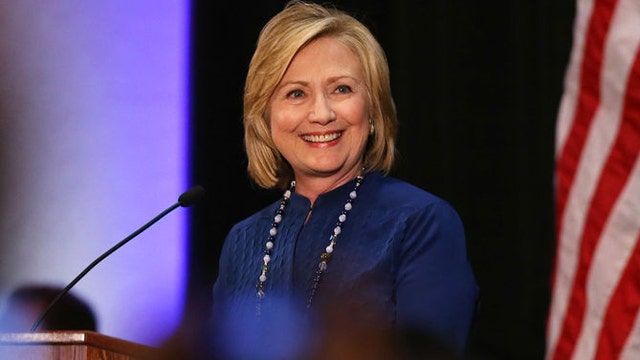Gonzales: 'Irresponsible' to say Hillary committed no crime
Former US attorney general says 'we don't know the facts yet' and that an 'independent, objective, third party' needs access to Clinton's personal email server
The State Department is facing new questions -- from the National Archives, as well as the union representing America's diplomats -- in connection with Hillary Clinton's exclusive use of personal email while secretary of state.
A senior official with the National Archives and Records Administration wrote to the department earlier this month seeking an explanation of how emails were managed during Clinton's tenure, and even before.
Citing recent news reports, Chief Records Officer Paul Wester, Jr., wrote: "NARA is concerned that Federal records may have been alienated from the Department of State's official recordkeeping systems."
He asked for an explanation, within 30 days, of what steps they've taken to retrieve such records.
Meanwhile, the president of the American Foreign Service Association -- the organization representing Foreign Service officers -- earlier this week wrote to the human resources division of the State Department on a separate but related matter.
The group is demanding a clarification on whether there is a difference between how the department's rules apply to career diplomats versus political appointees -- given how the case of former Secretary of State Clinton has been handled in recent days.
The two letters illustrate how the controversy has evolved beyond a mere partisan issue. House Democratic Leader Nancy Pelosi claimed Thursday, when asked about the emails, that she's concerned lawmakers will use this to keep investigating Clinton -- saying they'd even investigate her "hair."
But the National Archives and AFSA are nonpartisan groups. Their questions speak to growing concerns over why Clinton's communications were apparently handled differently than others'.
At issue in the AFSA letter is how the department enforces the rules in its official Foreign Affairs Manual -- or "FAM."
"We would be grateful if you could help us understand if there is, in practice or by law, any difference in how these standards apply to and are enforced for non-career appointees as opposed to career employees, both Foreign Service and Civil Service," Robert Silverman, president of the American Foreign Service Association, wrote in the letter dated March 17.
Silverman referred specifically to State Department spokeswoman Jen Psaki declaring at the department podium on March 10 that the manual contains "guidelines," as distinguished from law.
The issue came up when Psaki was asked about a report noting that a years-old FAM update had urged employees to preserve their emails.
"They're guidelines," she said. Psaki also said last week, "The FAM is not a regulation. It's recommendations."
The department has referred to the manual as containing mere guidelines as Clinton herself has stressed that she broke no laws and claimed that she was allowed to use personal email while secretary -- her office eventually turned over thousands of "work-related" emails, last year, when asked for them.
Raising additional questions, the department earlier this week revealed that Clinton, to their knowledge, had not signed a so-called separation statement -- a document that many departing employees sign attesting they've turned over all official documents. Had Clinton signed this, it could have been seen as a false statement.
But Psaki repeatedly said that secretaries often do not sign the form.
In his letter, Silverman did not specifically address the matter of the separation form. But hinting at the notion that there may be a double standard for Clinton and other political appointees he wrote, "we have always understood the FAM to consist of regulations to which we must adhere. AFSA would like to ask if non-career appointees are formally subject to all of the rules and regulations in" the manual.
As for the National Archives letter, Psaki acknowledged Wednesday that they've received it.
"I'm sure we'll be responding to the letter formally," she said.
Fox News' Ed Henry and FoxNews.com's Judson Berger contributed to this report.





